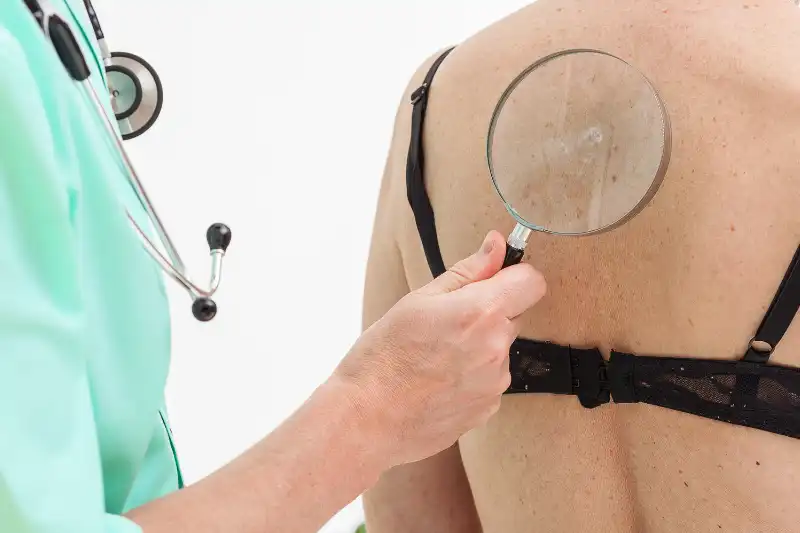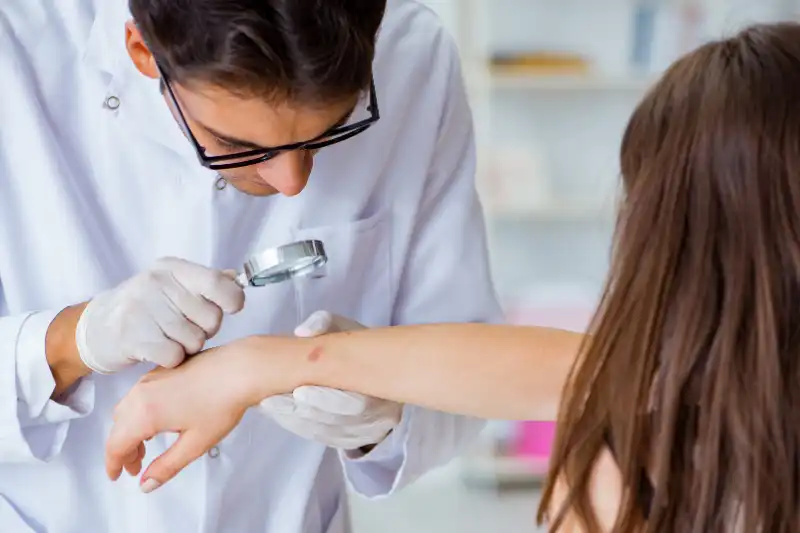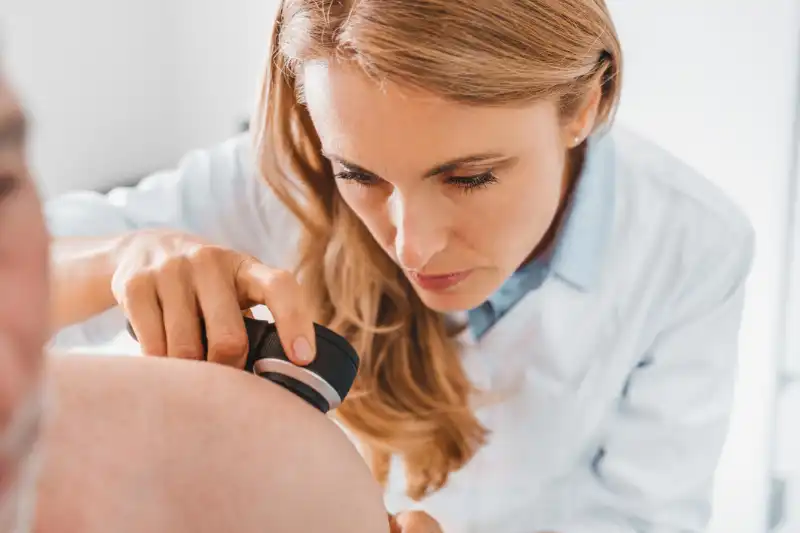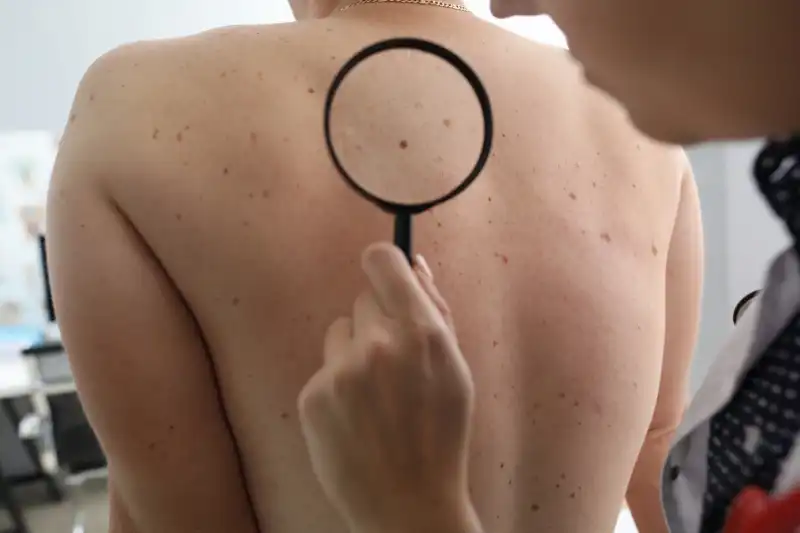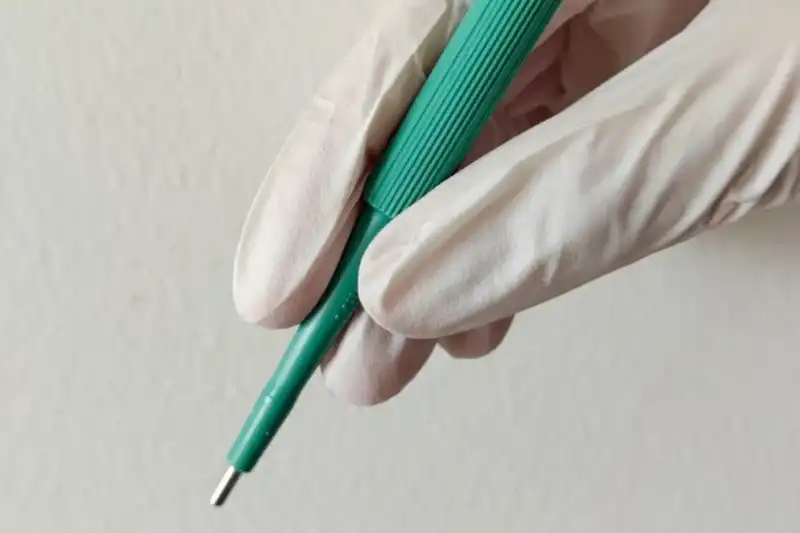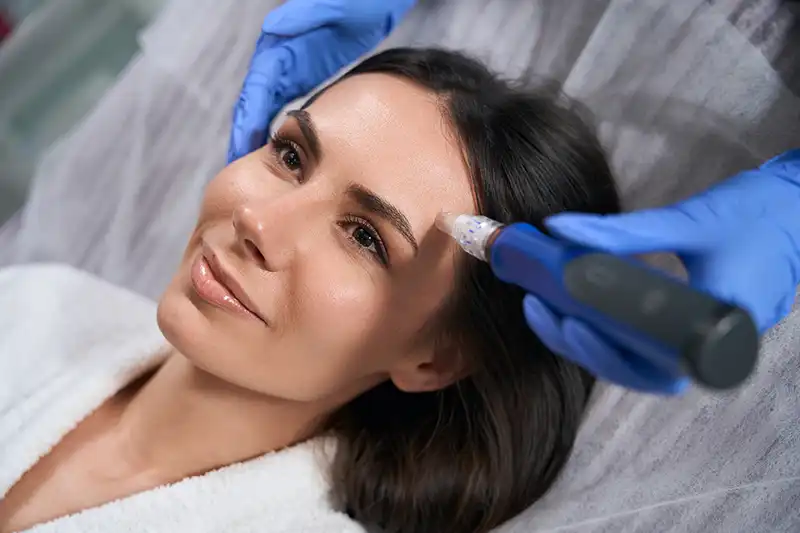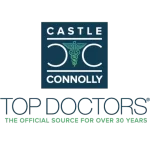What is Medical Dermatology?
Medical dermatology focuses on diagnosing and treating health conditions affecting the skin, nails, scalp, and hair. This could be cosmetic, like stubborn acne – or medical, including conditions like persistent rashes, itchiness, and infections.
Whether these symptoms are the main issue or related to another health concern, Dr. Stuckert, has the expertise to provide much-needed relief.
Some of the common treatments that we offer here at Premier Partners in Dermatology include:
- Topical Medications: Prescription and over-the-counter creams, ointments, and gels for conditions like acne, eczema, psoriasis, and fungal infections.
- Oral Medications: Prescription medications in pill form to treat skin conditions, such as antibiotics for acne or immunosuppressants for autoimmune skin disorders.
- Biologic Therapies: Advanced treatments targeting specific immune system responses, often used for severe psoriasis, eczema, or certain autoimmune diseases.
- Phototherapy: Controlled exposure to ultraviolet (UV) light to manage conditions like psoriasis, vitiligo, and some forms of eczema.
- Oral Antifungal Medications: Prescription medications used for fungal skin infections like Ringworm or nail fungal infections.
- Topical Steroids: Prescription medications that reduce inflammation and itching in skin conditions like eczema.
- Skin Cancer Treatments: Procedures like mohs surgery for skin cancer removal, as well as radiation therapy and chemotherapy in some cases.
- Cryotherapy: The use of extreme cold to freeze and remove skin growths, warts, or precancerous lesions.
- Excisional Surgery: Surgical removal of skin lesions or growths for biopsy or treatment.
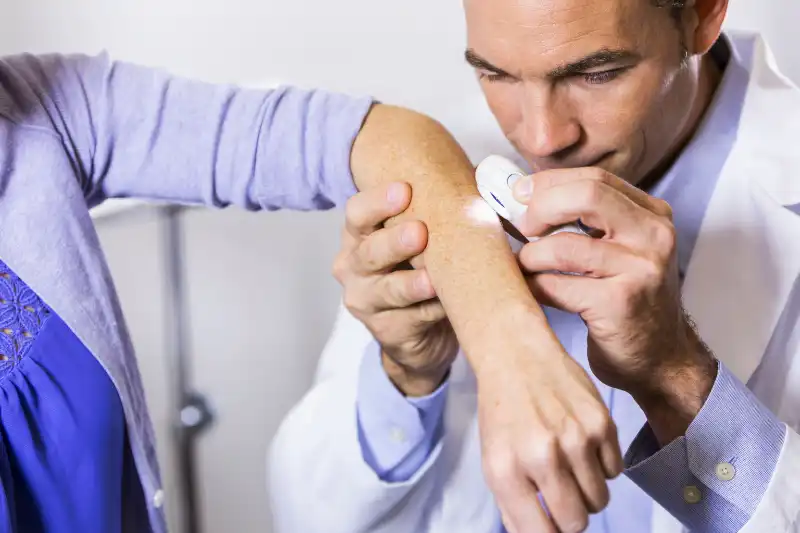
Signs and Symptoms You Need Medical Dermatology
Unfortunately, skin conditions are extremely common. In fact, one in three Americans are experiencing some form of one at any given time. There are some skin, hair and nail conditions that can go away with time and changes to your lifestyle, but recurring or chronic conditions will require expert treatment from a dermatologist.
Common signs and symptoms that you need medical dermatology:
- Skin Rashes: Persistent or recurring skin rashes that cause discomfort, itching, or pain.
- Acne: Moderate to severe acne that does not respond to over-the-counter treatments.
- Eczema: Chronic and itchy skin inflammation that disrupts daily life.
- Psoriasis: Thick, red, and scaly patches of skin, often accompanied by discomfort.
- Rosacea: An inflammatory skin condition that results in reddened skin or a rash, often found on the nose and cheeks.
- Skin Discoloration: Changes in skin color or pigmentation, including unexplained dark or light patches.
- Growths: Skin growths, nodules, or cysts that require evaluation.
- Skin Infections: Infections like cellulitis, impetigo, or fungal infections.
- Skin Lesions: Suspicious moles or skin lesions that change in size, shape, or color.
- Persistent Itching: Unrelenting itching without an apparent cause or relief.
- Sun Damage: Signs of sun damage, including premature aging, sunspots, or actinic keratosis.
- Skin Sensitivity: Hypersensitivity or allergies to skincare products.
- Skin Cancer Concerns: Personal or family history of skin cancer or concern about potential skin cancer symptoms.
If you notice any unusual changes to your skin it’s time to take action. Schedule your consultation with Dr. Stuckert today!
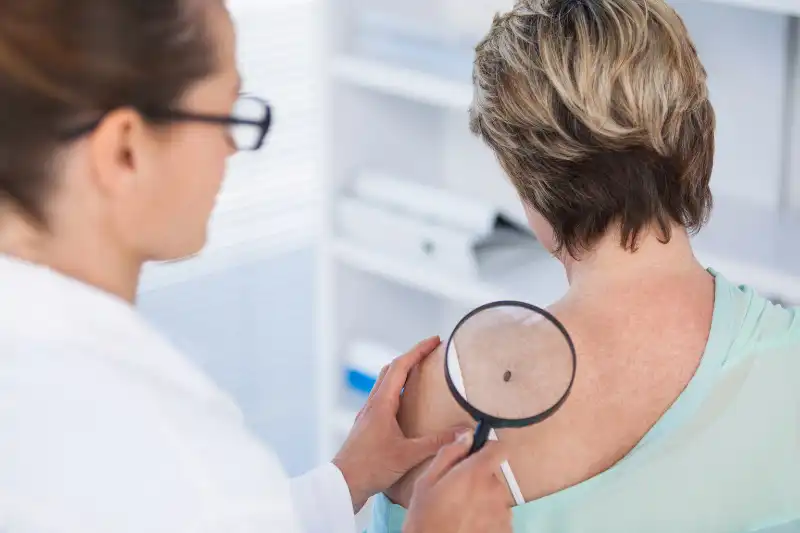
How Do Medical Dermatology Treatments Work?
Medical Dermatology begins with a consultation with Dr. Stuckert, during which you discuss your skin concerns and history. Next, he’ll conduct a detailed examination of your skin, nails, and hair to identify any issues. Based on your unique situation, he’ll create a personalized treatment plan for you. Here’s a step-by-step overview of how this process can go:
- Consultation: During this visit, you discuss your skin concerns, medical history, and any relevant symptoms.
- Examination: Dr. Stuckert examines your skin, hair, nails, or affected areas closely. They may use specialized instruments and techniques to get a precise diagnosis.
- Diagnosis: Based on the examination, medical history, and any necessary tests (such as Biopsies).
- Treatment Plan: Once diagnosed, Dr. Stuckert devises a personalized treatment plan tailored to your condition.
- Prescriptions: If medications are prescribed, Dr. Stuckert will explain how to use them, including dosage and frequency.
- Procedural Interventions: In some cases, procedures like cryotherapy, excisions, or injections may be recommended as part of the treatment plan.
- Follow-up Appointments: Depending on your condition, follow-up appointments may be scheduled to monitor progress, adjust treatment if necessary, and ensure your skin’s health is improving.
- Education: Throughout the process, Dr. Stuckert will educate you about your condition, including triggers, prevention strategies, and long-term management.

